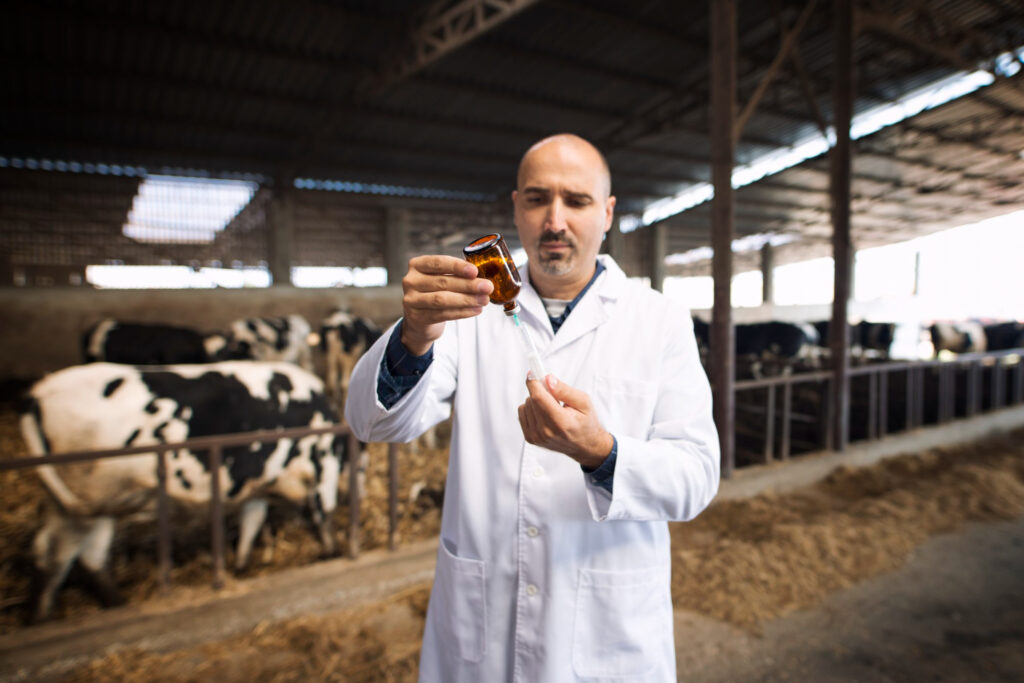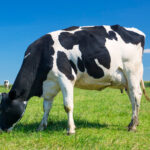Cow Health: Essential Practices for Maintaining Well-Being in Dairy and Beef Cattle
Cows are vital to agriculture, providing milk, meat, and other resources that sustain both human populations and economies. To ensure that cows remain productive and healthy, it is essential to prioritize their health and well-being. This article discusses the key aspects of cow health, including nutrition, housing, disease prevention, and management practices that promote optimal health in both dairy and beef cattle.
1. Importance of Nutrition
Proper nutrition is fundamental to cow health, influencing growth, reproduction, milk production, and overall well-being.
a. Balanced Diet
Cows require a balanced diet that includes the right proportions of:
- Forage: The primary component of a cow’s diet, forage includes grass, hay, and silage. Forage provides essential fiber for proper digestion.
- Concentrates: These include grains and protein sources (such as soybean meal or canola meal) that provide energy and protein.
- Minerals and Vitamins: Essential minerals (like calcium, phosphorus, and magnesium) and vitamins (such as A, D, and E) are crucial for growth, reproduction, and immune function. A mineral supplement may be necessary, depending on the forage quality.
b. Water Intake
Access to clean, fresh water is vital for cow health. Cows require a significant amount of water daily, particularly lactating cows. Dehydration can lead to decreased milk production and overall health issues.
2. Housing and Environment
A suitable living environment significantly impacts cow health and well-being.
a. Comfortable Housing
- Ventilation: Adequate ventilation helps maintain a comfortable temperature and reduces humidity, preventing respiratory issues.
- Space: Cows need sufficient space to move freely. Overcrowding can lead to stress and an increased risk of injury and disease.
- Bedding: Providing clean, dry bedding helps prevent injuries and minimizes the risk of infections, particularly in the hooves.
b. Pasture Management
For cows that graze, proper pasture management is crucial. Rotating grazing areas helps prevent overgrazing and allows the land to recover. Healthy pasture contributes to better nutrition and reduces the risk of parasites and diseases.
3. Disease Prevention and Health Management
Preventing diseases is essential for maintaining cow health and maximizing productivity.
a. Vaccination and Veterinary Care
Regular vaccinations protect against common diseases such as:
- Bovine Respiratory Disease: A leading cause of morbidity and mortality in cattle, particularly in young calves.
- Clostridial Diseases: Including blackleg, which can be fatal.
- Bovine Viral Diarrhea (BVD): A viral infection that can lead to severe health issues.
Regular veterinary check-ups help identify health problems early and keep cows up to date on vaccinations.
b. Parasite Control
Internal and external parasites can negatively impact cow health. Regular deworming and monitoring for parasites are essential for preventing weight loss, poor milk production, and general ill health. Consult with a veterinarian to establish an appropriate parasite control program.
c. Biosecurity Measures
Implementing biosecurity measures is vital for preventing the introduction and spread of diseases. This includes:
- Quarantine: Isolating new animals before introducing them to the herd to monitor for signs of illness.
- Hygiene Practices: Regular cleaning of facilities, equipment, and feeding areas helps minimize the risk of disease transmission.
4. Monitoring and Assessing Cow Health
Regular observation and assessment of cow health can help identify potential issues before they become serious.
a. Body Condition Scoring (BCS)
Body condition scoring is a valuable tool for assessing the health and nutritional status of cows. BCS evaluates the fat cover and overall body condition of cattle, helping farmers adjust feeding programs accordingly.
b. Monitoring Behavior
Changes in behavior can indicate health issues. Signs to watch for include:
- Reduced Feed Intake: A decrease in appetite can indicate illness or stress.
- Lethargy: Cows that are unusually quiet or inactive may be unwell.
- Isolation: Cows that separate themselves from the herd may be experiencing health issues.
5. Reproductive Health
Reproductive health is crucial for maintaining a productive herd, particularly in dairy cattle.
a. Breeding Management
Regular reproductive health checks, including monitoring estrus cycles and pregnancy status, can improve breeding success. Timely artificial insemination (AI) or natural breeding can enhance reproductive performance.
b. Nutrition for Reproductive Health
Proper nutrition is essential for reproductive success. A well-balanced diet supports healthy pregnancies, lactation, and overall reproductive performance. Nutritional deficiencies can lead to complications such as:
- Poor Conception Rates: Insufficient nutrition can negatively impact fertility.
- Calving Issues: Proper nutrition before and during calving helps reduce complications and ensure the health of both the cow and the calf.
6. Conclusion
Maintaining cow health is crucial for the sustainability and productivity of dairy and beef operations. By prioritizing nutrition, providing suitable housing, implementing disease prevention measures, and monitoring overall health, farmers can ensure their cows lead happy, healthy lives. Investing time and resources into cow health not only enhances the well-being of the animals but also contributes to the success of agricultural operations and the quality of the products they produce. Happy and healthy cows are vital for a thriving agricultural system, benefiting both farmers and consumers alike.


